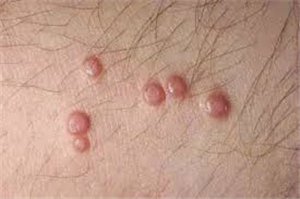Treatment and Prevention Tips of Genital Herpes
Treatment for genital warts depends on the type of warts you have and where they are located. You do not need treatment if there are no visible warts.
There are two main types of treatment for genital warts:
1. Applying a cream, lotion or chemical to the warts (topical treatment)
2. Destroying the tissue of the warts by freezing, heating or removing them (physical ablation)
Most topical treatments tend to work better on softer warts, and physical ablation tends to work better on harder and rougher-feeling warts. Sometimes, a combination of topical treatments is recommended.
For some people, treatment can take several months to remove the warts, so it is important to persevere.
You may be advised to avoid perfumed soap, bath bubbles or lotions while you are having treatment for warts as these can sometimes irritate the skin.
Prevention Tips
Recommendations for avoiding genital herpes are the same as recommendations for avoiding other sexually transmitted infections: Abstaining from sexual intercourse or limit sexual contact to only one person who is safe from infection. Short of that, you can:
Use a latex condom for any sexual activity with your partner
Avoid sex if either partner has herpes outbreak in the genital region or elsewhere
Pregnancy Precautions during genital herpes
Tell your doctor that if you are pregnant and know you have genital herpes. If you think you might have genital herpes, ask to get it checked.
Your doctor may suggest you start taking herpes antiviral medicines late in your pregnancy to try to avoid an outbreak around delivery time. If you are having an outbreak when you go into labor, the doctor would possibly prescribe a cesarean operation to minimize the risk of transmitting the infection to your infant.



 Contact Us
Contact Us






 Hospitals
Hospitals
 Doctors
Doctors
 Diagnostic
Diagnostic
 Pharmacy
Pharmacy
 Health Tips
Health Tips
 Blog
Blog

























Comments